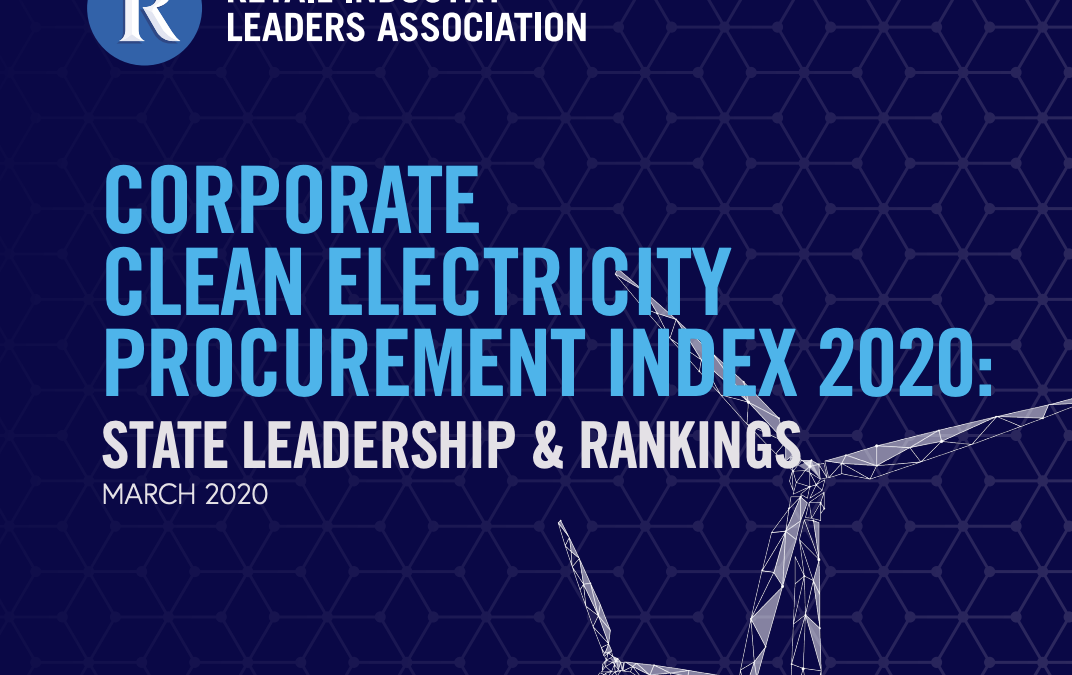Background
Businesses’ ability to purchase or produce renewable electricity (RE)—by purchasing through their electric utility, purchasing through a third party, or building their own generation facilities—continues to expand.
As of January 2020, nearly half of Fortune 500 companies have made public renewable energy, greenhouse gas (GHG), or energy efficiency commitments. Among Fortune 100 companies, 63% have adopted a public RE commitment. Additionally, RE100—a global corporate leadership initiative bringing together businesses committed to 100% RE—now includes over 200 companies (including many retailers) with 100% RE commitments, with 2028 as the average target date for companies to achieve their goals. One in three RE100 companies have already achieved at least 75% RE.
About the Report
The first Corporate Clean Energy Procurement Index: State Leadership & Rankings was published in 2017 and helped guide companies in their efforts to boost commercial and industrial (C&I) renewable electricity (RE) usage across their operations in the United States.
In the three years since the index’s initial analysis and publication, state-level RE markets have undergone dramatic evolutions on multiple fronts, including: commercial development, utility engagement, advances in RE technology and development economics, state-level policy frameworks, substantial growth in voluntary C&I RE purchases, and an evolution in buyer experience, sophistication, and expectations. These market changes have created an opportunity to refine and update the index for 2020 and provide companies with the granular insights that they need to make effective RE sourcing decisions across their U.S. operations.
While developed by RILA, this index is broadly applicable to many stakeholders, including other business sectors, the military, higher education institutions, and state and local governments. While the index has many potential uses, one key purpose is to assist RE buyers in selecting states with favorable RE policy conditions and to assist policymakers and RE buyers in advancing policies that help, rather than hinder, RE development
Overall Index Findings
Illinois leads the Index rankings with an overall score of 73.6 (out of a possible 100), nearly four points ahead of the next highest state, New Mexico, which leapt ahead 22 spots to the second position. Illinois moved up one spot from 2017, while previously top-ranked Iowa dropped to #14. Massachusetts moved up three spots to third place, while Nevada moved ahead 13 spots to #4 and New Jersey dropped two spots to round out the top five.
For more information, see the press release and 2017 edition of the report.
The full report is available for download from the RILA website.
